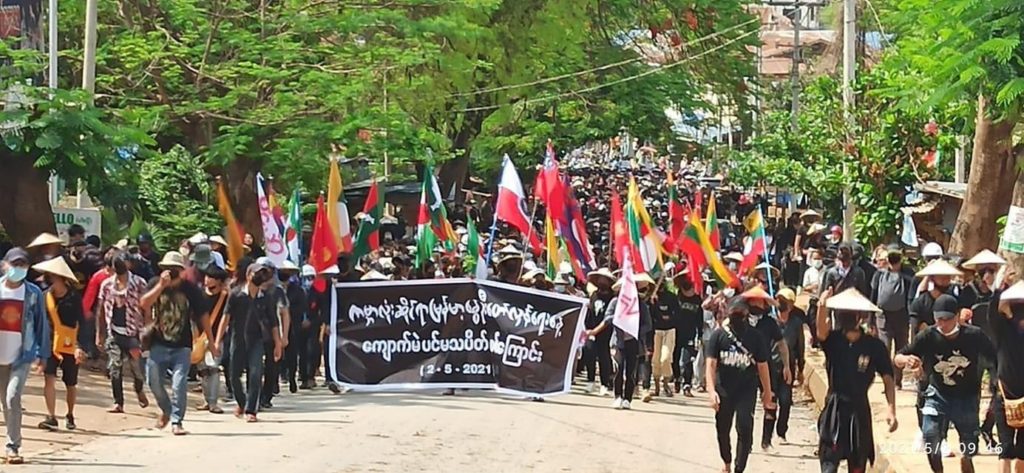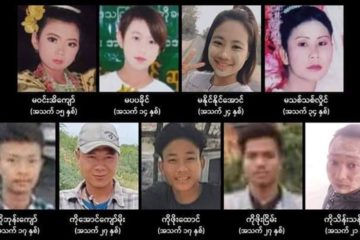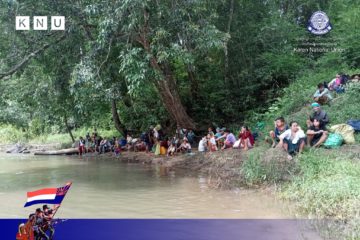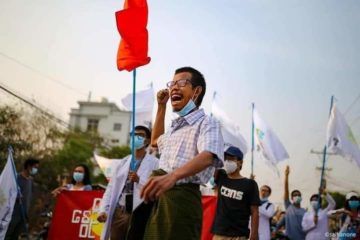
As the world celebrates May Day, this day takes on special significance in Myanmar.
At this moment Myanmar is already to be considered a “failed state”. A failed state: it is a country that is experiencing a major social, economic and political crisis and is unable to provide the basics of a legitimate State. Before pointing the finger at the protest and civil disobedience movements, it must be remembered that the Myanmar of January 31, 2021 was a Myanmar destined for an economic recovery, and a large part of the population looked to the future with optimism. It was still a long way from true democracy, and there was no shortage of problems of enormous inequality and civil wars. But Min Aung Hlaing’s coup is taking Myanmar back decades. The responsibility for everything that is happening in Myanmar lies with the generals.
The reason for the protests of these three months, despite the more than 700 deaths and 3000 arrests, is not the non-compliance with the November electoral result. What worries the population is the future under the military regime.
Myanmar lived 70 years under the Tatmadaw and knows well not only its ferocity, which today the whole world has learned about thanks to the internet, but also its political ineptitude. Under the military regime, Myanmar has no hope of growth and improvement.
Young people have no hope of having a good education, but only a propaganda education that teaches the need to have an army that holds the country together, based on memorizing and repeating notions like parrots, rather than developing logic and critical thinking. Young people would not reach their full potential in this system. And we have seen how amazing this young generation is.
Factory workers would not see their rights respected, many trade unions have already been made illegal today. The battles and small victories of recent years would be nullified, and would leave room for increasingly worse working conditions in an already very difficult context.
Farmers would experience great difficulties. Land expropriation is a widespread problem in Myanmar, especially in ethnic areas. Climate change that can damage agricolture is another threat that the generals would not address, quite the opposite. Furthermore, the various sanctions could harm exports.
Healthcare would completely collapse. We have seen how doctors and nurses were among the first to join the CDM. In the past, the Tatmadaw has shown that it has no interest in health care. Just think of Cyclone Nargis. Over 130,000 people died, many due to the regime’s bad (and criminal) handling of the emergency at the time. And these three months have shown that generals have no respect for people’s lives.
The environment would be damaged by indiscriminate exploitation policies. Myanmar is very rich in natural resources, precious stones, timber, gas and oil. The Tatmadaw has always functioned as a colonial force, rather than a security force, and is exploiting and enslaving the resources of its own country.
Tourism would suffer a severe blow. The opening up of the country after 2010 has led to a boom in tourism in Myanmar, and this has allowed many to find jobs and get out of poverty. Hotels, restaurants, tourist agencies, taxis, souvenir shops and tourist guides: hundreds of thousands of people are employed in this sector. The military dictatorship would lead many tourists to discard Myanmar as a destination for their travels. Not only. It would lead to mismanagement of the artistic heritage. Bagan has only recently become a UNESCO heritage site, also due to bad management and bad restructuring works carried out by the military regime.
The media would no longer be free. Myanmar has gone from being one of the most isolated countries in the world to being as connected as the rest of Southeast Asia. Internet and smartphones are now everywhere, independent newspapers had seen a resurgence, censorship was no longer a concern as it used to be. Information travels virtually free, or almost free (we recall the case of the two jailed Reuters journalists and their reportage on the Rohingya massacres). The internet restrictions of recent months and those in Rakhine and Mon State of the previous year are proof of how this freedom of information would no longer exist.
At the international level, Myanmar would become a joke, a “Pariah State”. The country would be forced to “sell out” to powers willing to maintain a relationship with a criminal regime such as China and Russia.
To all this are added civil wars and racial discrimination which certainly would not disappear under the regime.
There is nothing the military regime can improve in Myanmar. The key point is this: this is a small group of ferocious criminals, greedy for power and money who are also ignorant and unfit to govern a country.
Faced with this prospect, the Burmese cannot do anything but protest. Their future is at stake in a way we cannot even imagine.
The challenge of the protest movements is to bring down the regime by making the country ungovernable. The cunning and determination of the Burmese people is truly incredible. Since February they had a clear way to achieve their goal. And while the international community, the United Nations, ASEAN, the EU still don’t know how to react, the people of Myanmar are already bringing the generals to their knees.
Of course, the price paid is enormous. Hundreds of people, mostly young people, will not be able to see the new Myanmar. And the trauma of these months will probably remain for a long time. But the Myanmar that young people can now imagine, and which is perhaps not so far away, is much freer than it has ever been.



0 Comments